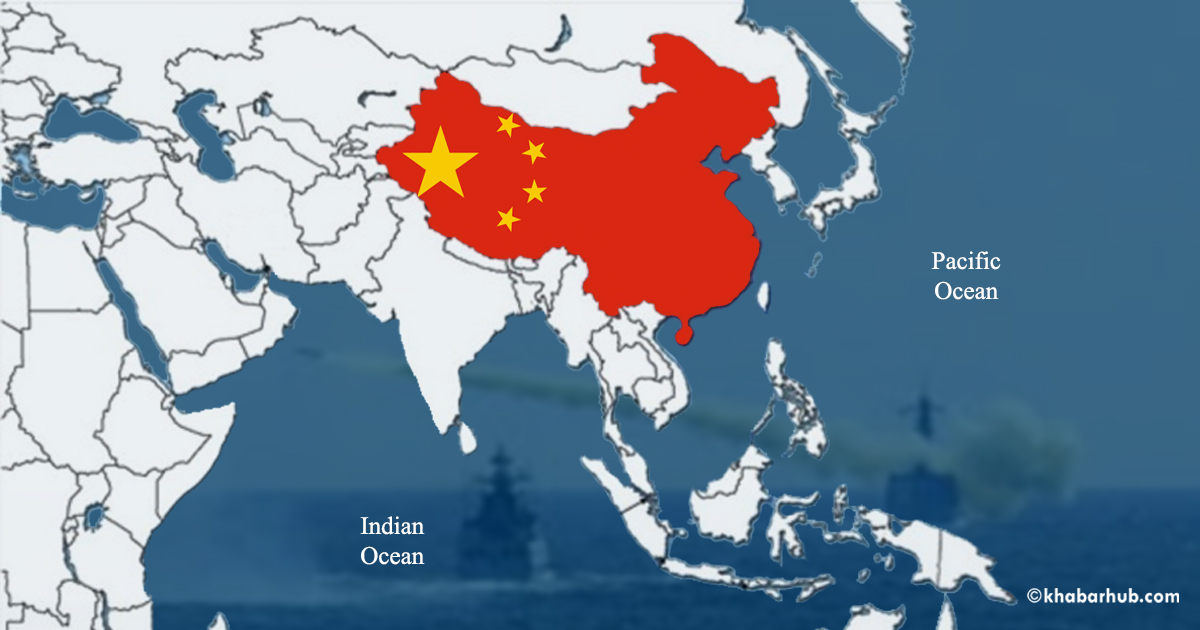NEW DELHI: A recent report ‘Dealing with the Dragon: China as a Transatlantic Challenge’ prepared by top US and European think tanks has warned that the Chinese Communist Party has emerged more assertive, unyielding, demanding, confrontational, and punitive in its international posture.
The report — the outgrowth of a symposium convened in Berlin, Germany, co-organized by Bertelsmann Stiftung, the Center on U.S.-China Relations at Asia Society, and the China Policy Program at George Washington University – says China has embraced an aggressive “Wolf Warrior diplomacy.”
According to the report, China has become substantially repressive in multiple domains.
The symposium also explored China’s new behavior and the implications for possible new responses on both sides of the Atlantic.
Several Europeans have believed that Europe should find its autonomous path between America and China.
While the US and European respective interests and perspectives on China continue to substantially overlap, the Donald Trump administration’s behavior towards European allies and partners has substantially eroded transatlantic trust, the report added.
The participants also expressed the need to repair transatlantic ties and suggested that shared concerns about China could be a catalyst for doing so, the report said.
The participants also agreed that engagement was no longer the paradigm for framing policies toward China.
They also expressed unanimous belief for regularizing transatlantic dialogues on China – not only at the “Track 2” level among the think tank and academic experts and “Track 1.5”, but also institutionalizing Track 1 governmental interactions.
They viewed that on both sides of the Atlantic, China policy has become a debated and contested issue.
The US participants stressed the scope and speed of shift in the US away from engagement and cooperation towards competition and further push back against Chinese predation, coercion, and aggression.
Many of the US participants pointed to a deterioration of views on China over the past couple of years. According to them, around two-thirds of the US public view China “unfavorably” and as a “rival.”
Debates about China have been occurring with intensity evincing a broad range of views in Europe.
Overall, Europe’s relations with China have been considerably more stressed as Xi Jinping’s regime has raised serious concerns among many European countries.
Several of the Americans see Chinese inbound investment through a national security lens while some of the Europeans are more concerned about protecting a technological comparative advantage.
The participants also emphasized that the challenge of maintaining Western advantages across a range of technologies has become crucial as China’s indigenous innovation has started challenging other developed countries for global supremacy in several critical technologies including AI, 5G, semiconductors, and quantum technologies, the report said.
For instance, advances in Chinese innovation have already set off alarm bells in the US government, Scandinavia, Germany, France, and the UK.
Connectivity: Dealing with the Belt & Road Initiative
There were some differences between the US and European participants to China’s Belt & Road Initiative (BRI).
While the Americans were concerned with its geopolitical implications, the Europeans emphasized its commercial or infrastructural dimensions.
Americans focused on the implications of BRI beyond Europe, tending to observe China’s global activities through the prism of the military and security dimension of the BRI.
Participants also expressed frustration over China’s backsliding and the in- effectiveness of the US and European efforts to address the situation.
China’s Influence Activities
The US and European experts also noted China’s overseas political influence activities a relatively new area of shared concern, according to the report.
They acknowledged that bringing China into the international institutional order was one of their principal common goals pursued in tandem since the 1980s, the report said.
The report has summarized the changing US and European views of, and relations with, China.
(With inputs from Agencies)









Comment